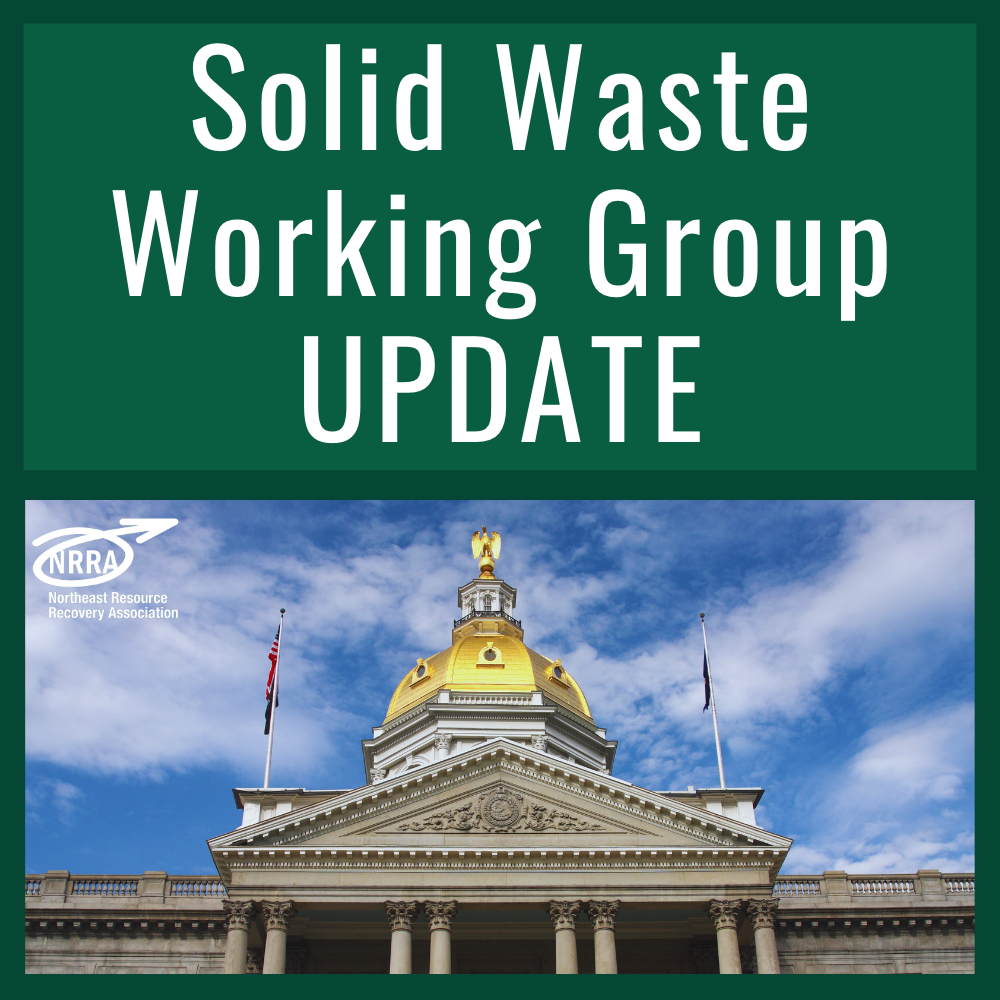CT and VT Share EPR Experiences with the Solid Waste Working Group
Over the past couple of months, the Solid Waste Working Group has focused on Extended Producer Responsibility (EPR) laws, exploring whether any specific EPR would make sense for New Hampshire in future legislation.
The April 19th meeting featured an informative presentation about Extended Producer Responsibility by Tom Metzner, Environmental Analyst for the Connecticut Department of Energy & Environmental Protection. Tom talked about CT's experience implementing EPR for paint, mattresses, tires, and batteries, all of which can save municipalities money and improve end markets for these materials.
Tom noted that in CT, thanks to an EPR program managed by PaintCare, 82% of the paint collected is recycled into new paint for reuse. He also shared that paint retailers that volunteered to participate as collection points saw an increase in foot traffic from customers as a result.
Under CT's mattress EPR program, the state estimates that municipalities have saved $3.25 million from the program, under which mattresses are collected for free and recycled. CT recently passed tire EPR primarily to address illegal dumping, but it is expected to also save municipalities money and promote higher end markets.
CT also has a battery EPR law that has not yet gone into effect. I shared with the committee how Call2Recycle's change in practice where they now charge for battery boxes has increased the cost of battery recycling for municipalities in NH. Tom concluded his presentation by explaining the importance of having a strong legislative advocate to pass effective EPR, as well as the importance of strong municipal support.
The May 17th meeting of the NH Solid Waste Working Group featured a presentation about Vermont's Extended Producer Responsibility laws for electronics and batteries by Josh Kelly, Solid Waste Program Manager at the Vermont Department of Environmental Protection.
Vermont's electronics recycling program, know as Vermont E-Cycles, was established in 2011. Residents have access to about 100 collection sites where covered electronics can be dropped off free of charge. Vermont acts as a stewardship organization for electronics producers and hires a collection and recycling contractor, with VT DEC costs reimbursed by electronics producers. On the positive side, the program works well for residents, businesses, and the state-hired electronics recycler. On the downside, the program requires contracting and close oversight by state employees.
Vermont's battery EPR law became effective in 2016 and Call2Recycle serves as the stewardship organization for the program. The law prohibits battery producers from selling household non-rechargeable batteries in Vermont unless they participate in a program that provides free collection and recycling of batteries to consumers. Although rechargeable batteries are not included in the law, they are also voluntarily collected by Call2Recycle. Residents and businesses have access to nearly 170 collection sites to drop off batteries free of charge. The program has a 25% collection goal, which has been difficult to reach despite reasonably good public awareness about the program.
At the June meeting, the Solid Waste Working Group will continue its discussion about Extended Producer Responsibility laws and consider recommendations for what laws may be appropriate to pursue in New Hampshire.
Consider joining us as we host the upcoming Solid Waste Working Group meeting in the NRRA office on June 21st from 9:30am to noon - it is open to the public!
